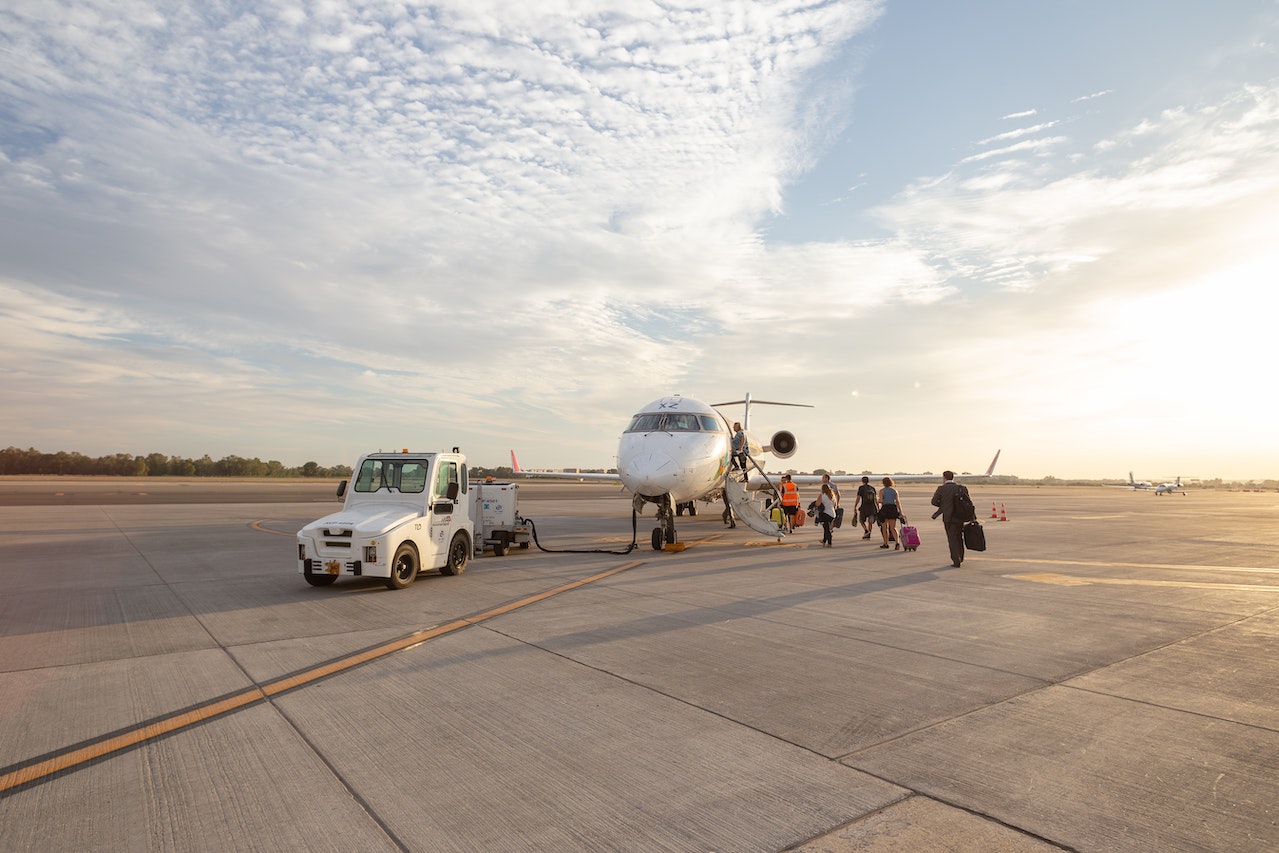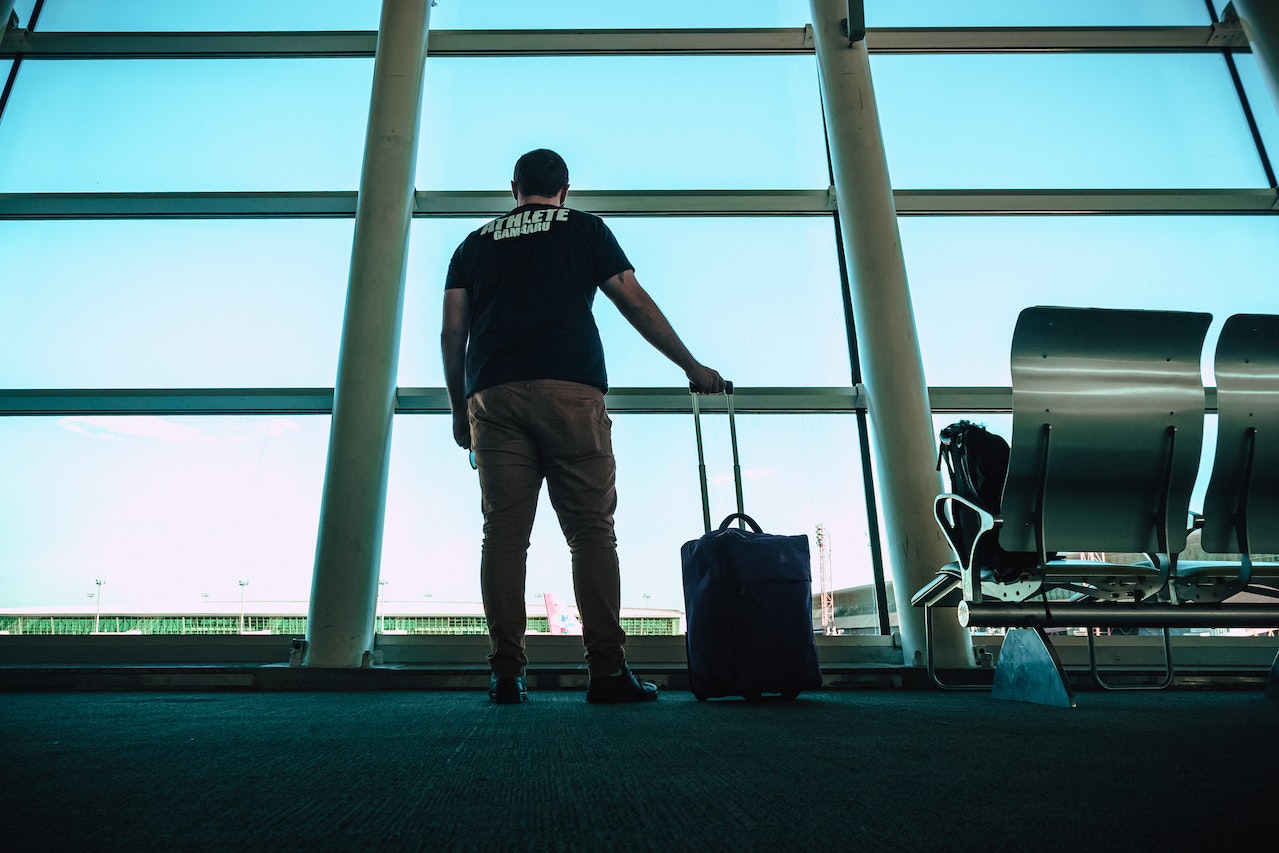Most firms and giant corporations include a substantial amount of travel in their strategy, which may be costly if these expenditures and expenses are not well monitored.
Optimizing your travel costs not only knows how to monitor spending, but they also have experience devising plans for organizations to assist them in optimizing their travel habits.
Travel cost optimization is essential in many enterprises and sectors. Even during the COVID period, individuals continue to travel, primarily because it is required for their jobs. An online video call cannot handle all job meetings or conversations.
Many still need a human to check the condition, direct employees, and intervene. That implies a firm must have a travel budget. Unfortunately, these travel budgets can consume significant amounts of money, time, and resources.
This guide will give you an in-depth idea of how to implement travel cost management.

Why do businesses need travel cost optimization?
Optimizing travel expenditures is critical and establishing a travel policy is crucial for any firm aiming to reduce travel and entertainment spending.
However, the employer should know that employees cannot be expected to follow the rules if there are none. As a result, many employees do not take advantage of cost-cutting options, which impacts the organization’s travel expenditures.
If your organization has a culture that believes travel is a fixed expense, you will be expected to assess expenditures regularly. It would be best if you created a business case for travel.
Reducing company travel expenses can be difficult, especially if your staff commutes to numerous locations worldwide. However, there are various methods for your company to save money by recognizing where to cut corners without jeopardizing employee safety.
To begin with, you must have an advanced travel and expenditure management framework to increase efficiency and lower expenses. Furthermore, it must be a collaborative effort by all stakeholders—travel managers, financial managers, and all employees. Continue reading to understand how to manage your total business travel expenses effectively.
Understanding Overall Corporate Travel Spend
According to recent research, 30 per cent to 40 per cent of corporate travel expenses are not managed or planned. Most modern travellers (57 per cent) prefer to arrange their planning and booking needs through a single application.
Travel bookings made outside of preferred channels and policy and out-of-pocket travel expenses such as meals and Uber rides need to be assessed and managed. Road transport costs can account for as much as 50 per cent of the total in many SMEs.
The secondary costs involved in air travel have multiplied dramatically in recent years. Good practices include centralizing bookings, using corporate payment methods, and negotiating rates with hotel chains.
Living expenses and meals at restaurants with or without a customer account for between 2.5 per cent and 10 per cent of the fees. Using centralized booking platforms is an example of a practice that can help optimize costs.

The Reality Behind Business Travel
Business travel may be costly. It is one of the highest costs for the majority of businesses. However, it is also one of the most critical costs for businesses.
After all, interacting with clients, prospects, and partners requires business travel. It may also be required to attend conferences and networking events.
The difficulty for many CFOs is not to eliminate all business travel. Instead, the objective is to develop ways to lower the expense of business travel while also automating the associated issues.
Travel challenges faced during business travel
Travellers’ challenges vary and depend on the frequency and duration of travel. What is mildly unpleasant to some who do it annually may be unbearable to others who travel weekly.
Regardless of these dependencies, travellers cite several challenges across the board.
1. Confusing Booking process
When travellers are constrained by business regulations, navigating between the policies, the booking and ticketing process, and the expense management process might necessitate a significant amount of moving and travelling back and forth to maintain harmony.
Many travellers are concerned about this since the disconnected design of each system makes it simple to make mistakes and increases the danger of manual error or oversight.
2. Time-consuming post-travel expenses
Employees are frequently tasked with gathering costs and receipts and presenting them in bulk for approval, once a month or once a quarter. This tiredness allows for human mistakes, leading to misreporting and later reconciliation.
3. Budget
The first obstacle is developing and adhering to a trip budget. It might be challenging because business travel fees can rapidly mount up.
Also, it is critical to identify strategies to minimize expenses without sacrificing quality. On the other hand, employees and consumers should never bear the brunt of cost-cutting efforts. This implies that travellers must be innovative in budgeting for business travel.
4. Accountability
The second difficulty is holding employees accountable for their travel costs. It can be challenging since many workers regard business travel as a privilege rather than a responsibility.
Travellers must develop strategies to ensure that staff understand the need to be cost-conscious when travelling.
5. Employee Wellbeing
Another problem is ensuring personnel are comfortable and safe on the road. It includes ensuring that they have enough lodging and that their travel itineraries are designed to reduce stress.
Most workers, for example, will not feel at ease staying at a Motel 6, but that doesn’t imply you have to entertain them at the Ritz Carlton.
6. Traveller Freedom
A fourth problem is allowing employees to plan their trips while controlling expenditures. It might be challenging since you don’t want workers booking first-class flights and five-star hotels on the company’s cash.
However, striking a balance between control and independence is critical. Travellers, for example, may have various tastes regarding what they want to eat, how they wish to travel, and so on.
Allowing them some latitude in these areas can go a long way toward making them feel more at ease and lowering their stress levels.
7. Follow the company’s travel policy.
Finally, it is essential to ensure that employees follow the company’s travel policy. It includes booking travel through the company’s preferred vendors and using its corporate card for all expenses.

How to optimize your travel budget?
In 2022, the travel sector faced several issues, including persistent health and safety concerns related to COVID-19, rising travel prices, and widespread travel cancellations and delays.
Indeed, business travellers are more anxious about travel cancellations and hold (61 per cent) than the customarily dreaded process of submitting their trip’s expense report (39 per cent). As a result, we’ve noticed a noticeable difference in stress levels before, during, and after business travel.
During the journey, over two-fifths of global business travellers (38 per cent) think it is the most stressful stage of the trip, a seven-point rise from 31 per cent in 2021.
More than half of travel managers (55 per cent) indicate that their job is as stressful as last year, and all questioned travel managers (100 per cent) predict their profession to be more difficult in the coming 12 months compared to the previous year.
To make life easier for travel managers and to get better budget management, you must have complete visibility of all business travel expenditures and be able to visualise the spending of each business trip by numerous categories.
It will assist you in calculating the average cost of business travel for each department, team, individual, and office location. It seems like a dream if you are used to more physical, labour-intensive methods.
1. Everything Travelers Need in One Booking Tool
Many workers, with the greatest of intentions, book outside of the recommended corporate tool. Employees have all they need in one booking tool since inventory is sourced from numerous GDSs and consumer sites.
This article discusses how automating travel and cost management may save teams time and prepare them for a return to business travel.
2. Understanding Travel Spending in Real Time
When delivering deeper visibility into employee travel plans and corporate expenses, finance and travel directors may change their programmes and policies depending on current market conditions, thanks to flexible backend controls for spending policy.
They are also better prepared to bargain with travel providers since they have reliable data on where the budget is being spent.
3. Perform a Comprehensive Travel Audit
The first step in controlling your expenditure is to know what you are spending. Conducting a full audit of all your travel excursions and transactions over the last year or even six months will help you acquire vital information that will assist you in deciding what is and isn’t worth the money.
You can’t target locations unless you know where your money is going. An audit can aid in optimizing services and expenditures in the future.
4. Have a Clear Policy on Expenses
Too many firms fail to create policies—or regulations—for managing travel spending.
The easiest way to avoid this is to have a complete procedure that guides and explains to members what constitutes a corporate cost. Being more inclusive can lead to a more thoughtful approach to policy without alienating your staff.
5. Plan Trips in Advance
Business travel is not the same as leisure travel. Last-minute flights and hotel accommodations are more expensive, and discounts are not always available. As a result, early planning is feasible regarding work trips.
Booking your flights and lodgings as long in advance as possible can significantly reduce the cost of these goods and services. Yes, it is impossible to foresee when meetings will take place and when they will not but scheduling them as far in advance as possible to minimize your trip expenses is vital.
As an added benefit, set aside a portion of your money as a “safety net” for last-minute appointments that arise when you least expect them.
6. Offer Incentives for Management & Employees
Nothing beats motivating management and staff with incentives to save money on their visits. Making it a business policy will better encourage the team to cut back on their spending, with bonuses or presents as a thank you.
You may feel out of place because you are still technically utilizing funds, but you will save more in the long run.
7. Hire a corporate travel manager or travel consultant
Using a professional consultant or firm to manage your travel and spending may be pretty advantageous. These professionals will handle everything, from bookings and bargains to pre-loaded credit cards and post-trip financial reconciliation.
While these professionals may charge you fees or a commission for their services, if you specify a budget or timetable, they will be able to manage it for you, saving you money. You’ll save time, resources, and money by having in-house personnel manage these trips, allowing them to focus on other critical activities.

Travel Cost Optimization Guide for Business Travel
Business travellers have experienced various challenges in 2022, including ongoing health and safety concerns relating to COVID-19, growing travel expenses, and widespread travel cancellations and delays.
Over two-fifths of worldwide business travellers consider the journey the most stressful part of the trip. This article examines how teams can save time and prepare for a return to business travel by automating travel and expense management.
Targeting places is impossible unless you know where your money is going. Conducting a thorough audit of all your vacation excursions and transactions over the previous year or even six months can provide you with essential information that will help you decide what is and isn’t worth the money.
Too many businesses fail to develop policies or laws for managing travel expenses. Nothing beats incentivizing management and workers to save money on their trips. Making it a business policy will motivate the team to spend less money.
Having in-house people organise these travels will save you time, resources, and money. These pros will handle everything from bookings and deals to pre-loaded credit cards and post-trip financial reconciliation.
We understand the importance of cost optimization for maximizing business value. With the help of the ideas mentioned in this travel cost optimization guide, you will maximize the value you get from your business travel budget.
Indradeep Datta is a professionally trained digital marketer based in London with a master’s in digital marketing from Oxford Brookes University. Indradeep specializes in technical SEO and content marketing. He is also the author of a lifestyle blogging website, “Customer Lifestyle. “


